Now in its third year, Fiction Uncovered is an initiative aimed at bringing the work of established (but not necessarily widely-known) British writers to the attention of a wider audience. A changing panel of judges curates a list of eight books published in the previous twelve months: this year’s panel comprised the writer Louise Doughty (chair of judges); dovegreyreader herself, Lynne Hatwell; Sandy Mahal of the Reading Agency charity; and the writer Courttia Newland.
I have written for Fiction Uncovered occasionally, and this year was lucky enough to have a preview of the list (which is announced today), so I’ve been catching up on the titles I’d not previously read. Here are the judges’ selections for Fiction Uncovered 2013:
Lucy Caldwell, All the Beggars Riding (Faber & Faber)

Lara Moorhouse looks back on her childhood; how her parents met; and the legacy of her father, a plastic surgeon who had another life and family in Belfast and died during the Troubles. Caldwell’s novel strikes me very much as a book about memory, writing, and the difficulties of capturing the past. Just as her father would rebuild faces, so Lara tries to reconstruct a version of the past that rings true for her – and it’s not until the final pages that we discover just how much work Lara has had to undertake.
Anthony Cartwright, How I Killed Margaret Thatcher (Tindal Street Press)

This is the story of Sean Bull, who grows up in a staunch Labour family in Dudley, and is nine years old in 1979 when he sees his grandfather thump Uncle Eric for voting Tory. We then follow Sean as he grows up through the ‘80s, witnessing the decline of the manufacturing community around him, and the effects on his family. He knows that Margaret Thatcher is involved in all this somehow, but as a child he can’t really comprehend what is happening. Cartwright paints an effective portrait of a time and place, and of a character trying to deal with circumstances far beyond his control.
Niven Govinden, Black Bread White Beer (The Friday Project)

Amal and Claud are a thirtysomething couple on their way to her parents’ house in Sussex; what nobody down there knows yet is that Claud has suffered a miscarriage. Black Bread White Beer stands out for me because of the precision with which Govinden depicts the couple’s relationship. It seems that Amal has never quite felt comfortable in the role of Claud’s husband – they come from dissimilar backgrounds (not just that his family is Indian and hers from rural England; the two families also have rather different outlooks and values), and Amal feels in some ways that Claud is simply better than him. There’s a sense that the baby was going to be what would finally cement the pair’s relationship, and now they need to rediscover what brought them together. By novel’s end, they may just be on the way to doing that.
Nikita Lalwani, The Village (Viking)

An Anglo-Indian documentary maker goes to film at an open prison in India, and finds her sense of ethics tested. Previously reviewed by me here.
Nell Leyshon, The Colour of Milk (Fig Tree)

In 1830, a farm girl is sent to work at the local vicarage… and you’ll have to read the rest of this short, intense novel to discover what happens. Previously reviewed by me here.
James Meek, The Heart Broke In (Canongate)

A big, sprawling novel which revolves around three characters: Ritchie Shepherd, a television presenter who’s been sleeping around; his sister Bec, a successful scientist who’s just broken up with a newspaper editor; and Alex Comrie, the drummer in Ritchie’s old band, now a cancer specialist, who embarks on a relationship with Bec. Meek traces the moral issues of these characters’ personal and professional lives, as that spurned newsman threatens to reveal their secrets.
Amy Sackville, Orkney (Granta)

Sackville’s debut, The Still Point, was one of my favourite reads of 2010; this follow-up shares its sharp focus on relationships and nature. Richard, a sixty-year-old literature professor, is on honeymoon in Orkney; his (unnamed) new bride was one of his students, mysterious and beautiful, drawn to the sea even though she can’t swim. Our thoughts may lead naturally to a particular interpretation of who (or what) Richard’s wife is; but Sackville does not permit such a straightforward reading. There’s a tension over how far Richard’s descriptions of his partner are her true nature, and how far they are his projections from within his literary frame of reference; the dynamic of the couple’s relationship then shifts over the course of the novel. Add to this a fine sense of place, and you have a highly intriguing read.
Rupert Thomson, Secrecy (Granta)

In 1691, the artist Gaetano Zummo (a genuine historical figure, notable for his realistic wax figures) arrives in Florence to undertake a commission for the Grand Duke of Tuscany – to create a life-size statue of Venus. Zummo hears whispers of what may be a plot against him; falls in love with a young woman named Faustina who is not all she seems; and uses as his model for the statue the body of another young woman found in the river, apparently murdered. Thomson presents Florence as a maze of secrets and stories, as it seems almost everyone has a tale to tell and something to hide.
Like this:
Like Loading...
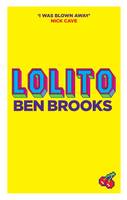
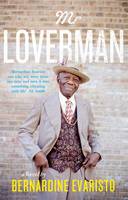
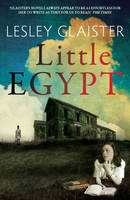
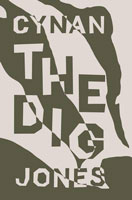
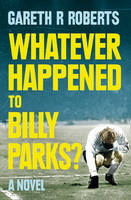
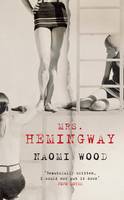
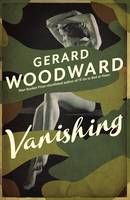









Recent Comments